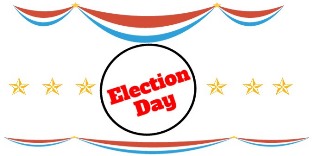Political Activity by Individuals Connected to Your 501(c)(3)
 By Henry Bogdan, Director of Public Policy and Advocacy, Maryland Nonprofits
By Henry Bogdan, Director of Public Policy and Advocacy, Maryland Nonprofits
Join Henry on Nov. 5th at the 2014 “Connecting for Impact!” Annual Conference for the workshop session, “What Really is the Role of 501(c)(3)’s in Advocacy?,” learn how to advocate for your organization and for the nonprofit sector!
As Election Day – November 4 – approaches, more questions may arise about what’s appropriate (or not) for board members, staff, or even volunteers of your 501(c)(3) organization who want to support candidates for office.
Employees and volunteers, including board members, of charitable organizations retain their First Amendment rights to support political candidates. There is nothing wrong with members of your board, employees, or other volunteers being politically active ‘in their own right,’ as individuals, as long as there is:
- No explicit statement or implication/inference that they are speaking on behalf of, or representing the views of the 501(c)(3) organization;
- No use of any resources of the 501(c)(3), (e.g. mailing list, email system, copier, facilities, staff time, etc.); and,
- No electioneering on the job, in the workplace, or during board or organization meetings (no signs, calls, buttonholing folks, etc.).
Where a person is well known for their role with a 501(c)(3) organization, it may be appropriate to make clear (for example if they are hosting a ‘house party’) that this is a personal activity on their part and doesn’t imply any view or position of that organization.
The Bolder Advocacy website of the Alliance for Justice has a “2014 Electoral Activity Center” with guidance on this and many other possible questions nonprofits and their staff may face, including the following advice in a recent blog:
“…, despite the prohibition on partisan political activity for 501(c)(3) organizations, employees do not lose their First Amendment rights simply because they work for a charity or foundation. In your personal time, you are free to volunteer on campaigns, endorse candidates, or contribute to campaigns. Of course, organizational resources should not be used to further the campaign of any candidate. It’s important and sensible for nonprofits to have a written organizational policy that prohibits partisan electioneering in the workplace. If you’d like to develop an election policy for your organization, please read our sample organizational policy for election season.
While staff and volunteers are allowed to campaign in their personal time, some 501(c)(3)s should also consider perception when setting their own policies concerning whether employees can openly support candidates in an individual capacity. A dilemma may occur when an executive or prominent staff member is so closely tied to the organization that the layperson assumes that the individual’s personal endorsement of a candidate represents an organizational endorsement of a candidate. When this happens, it could lead to unwanted inquiries, complaints, or accusations of partisanship from other organizations or individuals. The consideration then for charities or foundations is not only what’s permissible under the law but also what’s provident for the reputation and long-term stability of the organization. When employees of 501(c)(3)s make statements in support of candidates, they should make clear that they are speaking as individuals, not on behalf of their organizations.”
You can “Ask an Expert” at the Alliance for Justice, or contact us with questions on these issues.
![]() Join Maryland Nonprofits’ 2014 Annual Conference “Connecting for Impact!” November 5th at the Universities of Shady Grove in Rockville, MD.
Join Maryland Nonprofits’ 2014 Annual Conference “Connecting for Impact!” November 5th at the Universities of Shady Grove in Rockville, MD.
Connect with Maryland Nonprofits on Facebook, Twitter, LinkedIn, and Google+, tell us what you think and what kind of topics you would like to see more of on our blog.
![]() Fall into a rewarding nonprofit career, follow @MDNonprofitJobs
Fall into a rewarding nonprofit career, follow @MDNonprofitJobs
